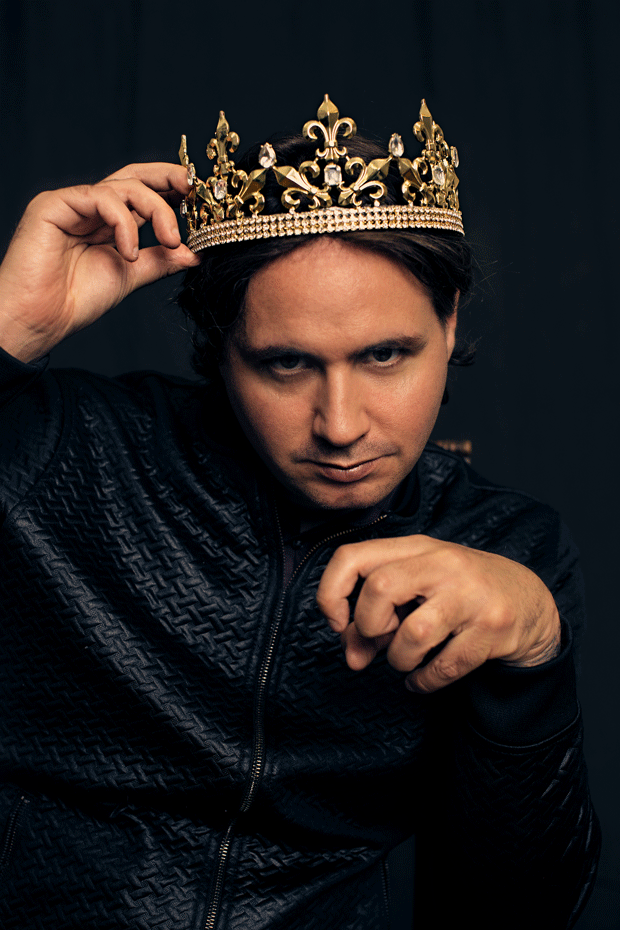5 Questions: Matt de Rogatis on Richard III Like You've Never See Him Before
The actor gives us a glimpse of his new portrayal of the crookbacked king in ”Wars of the Roses”, directed by Austin Pendleton.

(© Chris Loupos)
When we think of Richard III, two things usually come to mind: cutthroat ambition and an ungainly hunchback. Those associations come primarily from Shakespeare and his depiction of the king in Richard III. What many of us don’t know is the large role that Richard had in one of Shakespeare’s earlier plays, Henry VI, Part 3, in which the Bard shows us a younger Richard whose personality has not yet succumbed to the blackhearted ruthlessness that characterized his reign.
Actor and director Austin Pendleton has long been interested in Shakespeare’s portrayal of Richard in that earlier work and the idea of combining it with Richard III to examine Richard’s evolution from ambitious son to brutal tyrant. Pendleton and actor Matt de Rogatis decided to collaborate on a project that would do just that. Called Wars of the Roses: Henry VI & Richard III, the show brings together the two final plays of Shakespeare’s chronicle of that long-standing battle between the Yorks and the Lancasters.
Pendleton directs the production and plays Henry VI, and de Rogatis plays Richard in this never-before-seen conflation of the two works. De Rogatis offered us a glimpse inside the process of combining two Shakespearean plays and talked about the challenges he faces in portraying the “hunchback king.”
1. What inspired you and Austin to tackle the whole story of Shakespeare’s Richard III?
Austin and I met back in 2015 when he attended a production I was in. I spoke with him afterward, and the two of us became friends. The next summer when I played Hamlet, Austin coached me and was such a tremendous help. It seemed like the logical next step was to work together as actor and director. I suggested Richard III. Then Austin told me that he had always wanted to combine the texts of Henry VI, Part 3 and Richard III in a production to show the formation of how Richard came to be a villain. So we started working on creating the script.
2. How does Henry VI, Part 3 influence your portrayal of Richard?
It adds much more color and depth to the character. In Richard III, Richard starts the show evil, but in Henry VI, Part 3, he’s more vulnerable and innocent, at least for the first half or so. It almost feels like the prequel to Richard III. We get to see how he becomes this black legend, and we witness some of the events that happened that caused his rise to tyranny. It feels like much more of a journey with a much richer character arc.
3. What special challenges, physical and otherwise, did this new version of Richard present you with as an actor?
Shakespeare is such a great challenge. First you have to figure out how to memorize the tricky text. Then you’ve got to convey it to the audience through your emotions and body language. Richard is a hunchback with a withered arm, so having to embody that has been a great challenge. I’ve already got back pain.
4. Why do you think Richard III still fascinates us?
He’s a villain. People love villains. I’m fascinated by them too. He’s also a historical figure, which I think sparks interest. And then of course, it’s Shakespeare, which is timeless.
5. What can audiences expect from this production?
They are essentially going to see a new play. We’ve got a simple set, and it’s all very presentational. I don’t want to give too much away. Austin created this version and cut it to how he wanted it. The exciting thing is you’ve never seen this version before, and never will again.







